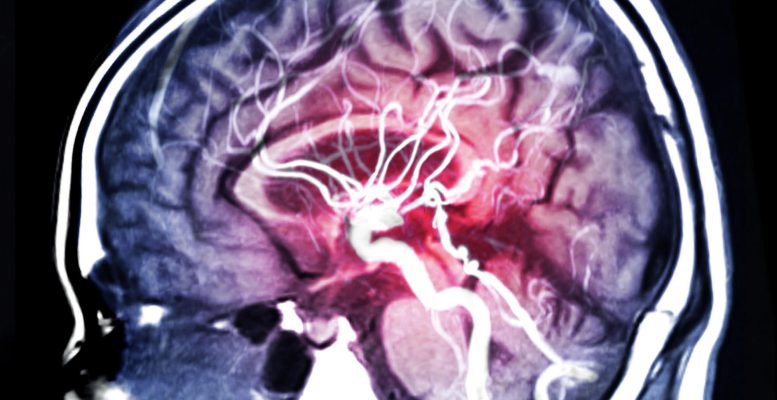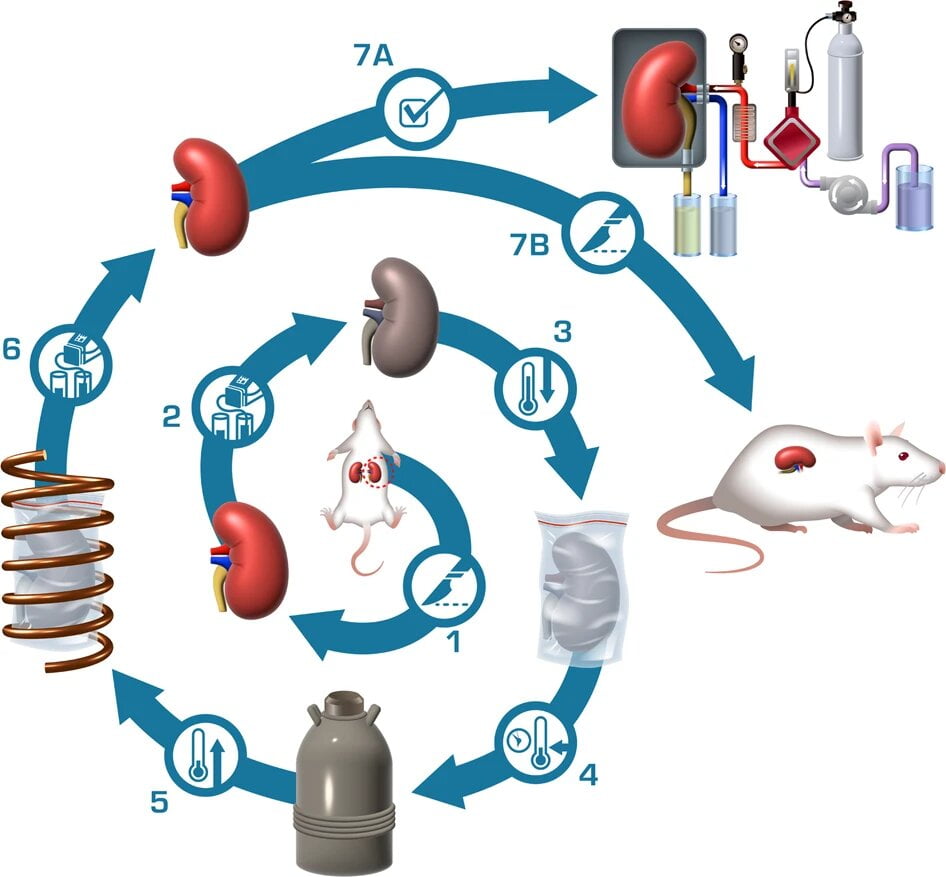
A new study shows that a new combination of drugs can improve the quality of life without significant disability in patients suffering from intracerebral hemorrhage (ICH), a type of stroke. The treatment includes the rapid control of blood pressure, among other treatment methods, and allows for early recovery, reducing the number of deaths, and quality of life for patients; The study shows that this protocol could save thousands of lives worldwide if adopted globally.
The combination of medical care has been found to improve outcomes, which has proven to be particularly beneficial in low- to middle-income countries where the majority of brain haemorrhages occur.
The George Institute for Global Health has revealed data from the phase III INTERACT3 study. This study confirms that a new combination of drugs for stroke caused by intracerebral hemorrhage (ICH) significantly improves survival, and reduces significant disability. The results were presented at the European Stroke Organization meeting held in Munich, Germany, and were published in The INTERACT3 trial is the first-ever randomized controlled study that has presented a distinctly positive outcome for ICH treatment. The implementation of this new treatment procedure, known as a Care Bundle, focusing primarily on swiftly controlling high blood pressure, resulted in superior recovery, decreased mortality rates, and an overall enhancement in the quality of life of the patients suffering from this grave condition.
Professor Craig Anderson, Director of Global Brain Health at The George Institute and a senior author of the research said, “Despite the high rates of ICH and its severity, there are few proven options for treating it, but early control of high blood pressure is the most promising. Time is critical when treating this type of stroke, so we tested a combination of interventions to rapidly stabilize the condition of these patients to improve their outcomes. We estimate that if this protocol was universally adopted, it could save tens of thousands of lives each year around the world.”
Commonly referred to as a hemorrhagic stroke or brain bleed, ICH is the second most common type of stroke and also the most deadly, with 40% to 50% of patients dying within 30 days. It occurs when blood leaks out of a blood vessel into the brain tissue and represents over a quarter of all cases of stroke, affecting approximately 3.4 million people a year.
In the INTERACT3 study, over 7,000 patients were enrolled across 144 hospitals in 10 countries – nine middle-income countries and one high-income country.
The research team evaluated the effectiveness of the new Care Bundle, which included the early intensive lowering of systolic blood pressure, strict glucose control, fever treatment, and rapid reversal of abnormal anticoagulation.
They found that using this new treatment protocol compared to usual care reduced the likelihood of a poor functional outcome, including death, after six months. This was estimated to prevent one additional death for every 35 patients treated.
Central to this was a rapid reduction in systolic blood pressure, where target levels were achieved, on average, in 2.3 hours [range 0.8 to 8.0 hours]compared to 4.0 hours [range 1.9 to 16.0 hours] in the control group. The intervention program resulted in a reduction in the number of deaths, the number of serious adverse events, and the time to hospital admission, as well as showing improvements in health-related quality of life.
The burden of ICH is greater in low- and middle-income countries. In 2019, 30% of all stroke cases in LMICs were ICH, almost double the rate seen in high-income countries (16%). This is partly due to the high prevalence of high blood pressure and the limited resources available to prevent it, including identifying and monitoring stroke risk and medical services.
Dr. Lili Song, lead author and Director of the Stroke Program at The George Institute China, said, “The lack of proven drugs for ICH has led to pessimism that there is not much that can be done for these patients. However, with INTERACT3, we are showing on a large scale how readily available drugs are. could be used to improve outcomes in unarmed settings. We believe this evidence will inform clinical practice around the world and help save many lives.”
Abstract: “Third Intensive Care Unit Antihypertensive Treatment in Acute Cerebral Haemorrhage Trial (INTERACT3): an international, cross-sectional, randomized controlled trial” by Prof Lu Ma, MD, Xin Hu, MD, Lili Song, PhD, Xiaoying Chen , PhD, Menglu Ouyang, PhD, Prof Laurent Billot, MRes, Qiang Li, MBIostat, Alejandra Malavera, MD, Xi Li, MM, Prof Paula Muñoz-Venturelli, PhD, Prof Asita de Silva, DPhil, Prof Nguyen Huy Thang, MD , Prof Kolawole W Wahab, MD, Prof Jeyaraj D Pandian, MD, Prof Mohammad Wasay, MD, Prof Octavio M Pontes-Neto, PhD, Prof Carlos Abanto, MD, Prof Antonio Arauz, PhD, Haiping Shi, MM, Guangzhou Tang, MBBS, Sheng Zhu, MBBS, Xiaochun She, MM, Leibo Liu, MSEng, Yuki Sakamoto, MD, Shoujiang You, MD, Qiao Han, MD, Bernard Crutzen, MD, Emily Cheung, MD, Yunke Li, MD, Xia Wang, PhD, Chen Chen, MD, Feifeng Liu, MM, Yang Zhao, PhD, Hao Li, MD, Prof Yi Liu, MD, Prof Yan Jiang, PhD, Prof Lei Chen, PhD, Prof Bo Wu, MD, Prof Ming Liu, PhD, Prof Jianguo Xu, MD, Prof Chao You, MD and Prof Craig S Anderson, PhD, to INTERACT3 Investigators, 25 May 2023, The Lancet.
DOI: 10.1016/S0140-6736(23)00806-1
This study was supported by the National Health and Medical Research Council, the Medical Research Council, the Wellcome Trust, and the West China Hospital.
#Brain #Loss #Treatment #Protocol #Save #Millions #Lives #Year


